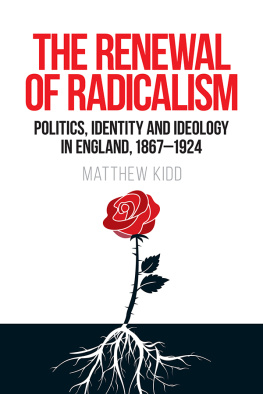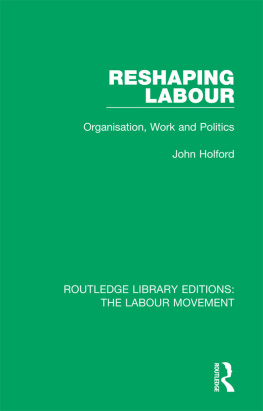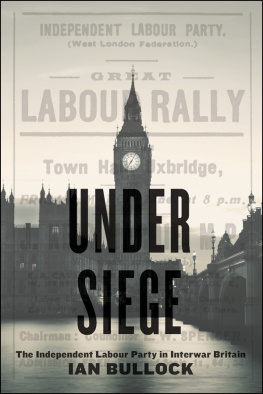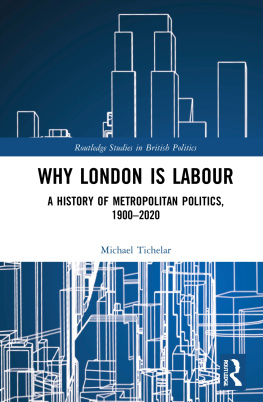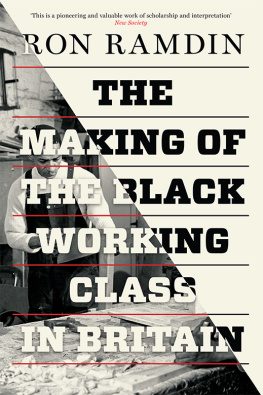Matthew Kidd - The Renewal of Radicalism: Politics, Identity and Ideology in England, 1867-1924
Here you can read online Matthew Kidd - The Renewal of Radicalism: Politics, Identity and Ideology in England, 1867-1924 full text of the book (entire story) in english for free. Download pdf and epub, get meaning, cover and reviews about this ebook. year: 2020, publisher: Manchester University Press, genre: Politics. Description of the work, (preface) as well as reviews are available. Best literature library LitArk.com created for fans of good reading and offers a wide selection of genres:
Romance novel
Science fiction
Adventure
Detective
Science
History
Home and family
Prose
Art
Politics
Computer
Non-fiction
Religion
Business
Children
Humor
Choose a favorite category and find really read worthwhile books. Enjoy immersion in the world of imagination, feel the emotions of the characters or learn something new for yourself, make an fascinating discovery.
- Book:The Renewal of Radicalism: Politics, Identity and Ideology in England, 1867-1924
- Author:
- Publisher:Manchester University Press
- Genre:
- Year:2020
- Rating:3 / 5
- Favourites:Add to favourites
- Your mark:
The Renewal of Radicalism: Politics, Identity and Ideology in England, 1867-1924: summary, description and annotation
We offer to read an annotation, description, summary or preface (depends on what the author of the book "The Renewal of Radicalism: Politics, Identity and Ideology in England, 1867-1924" wrote himself). If you haven't found the necessary information about the book — write in the comments, we will try to find it.
The emergence of Labour politics in southern England represented the renewal of the working-class radical tradition. During the mid-Victorian era, working-class radicals formed lively political subcultures in towns and cities across the East Midlands, East Anglia and the South West. In the 1880s and 1890s, many of them embraced the collectivist spirit of the times and built local labour parties that would go on to become local branches of the national Labour Party. But even as they established new organisations, labour activists, as they came to be known, remained committed to the cultural assumptions, discursive practices and ideological beliefs of their political predecessors.
The renewal of radicalism maps the trajectory of Labour politics from its origins in a class-conscious radical tradition through to its emergence as a major electoral force in the 1920s. Focusing on largely neglected areas in provincial southern England, the book offers a new narrative of continuity that challenges conventional understandings of English political history. By applying the conceptual analysis of ideologies to the world of local politics, the book identifies, for the first time, the conceptual building blocks of radical and labourist ideologies, suggesting that both deserve to be treated separately from liberalism and socialism. Matthew Kidd offers a fresh perspective on the Labour Partys contribution to the nationalisation of political culture, the survival of restrictive assumptions about gender, place, work, nationality and race in the face of political and economic change, and the process through which political identities and ideologies were forged at a local level.
Matthew Kidd: author's other books
Who wrote The Renewal of Radicalism: Politics, Identity and Ideology in England, 1867-1924? Find out the surname, the name of the author of the book and a list of all author's works by series.

